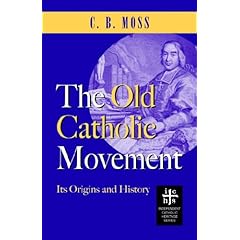In the history of Christianity, the Conciliar movement or "Conciliarism" was a reform movement in the 14th and 15th century Roman Catholic Church which held that final authority in spiritual matters resided with the Roman Church as corporation of Christians, embodied by a general church council, not with the pope. The movement emerged in response to the Avignon papacy— the popes were removed from Rome and subjected to pressures from the kings of France— and the ensuing schism that inspired the summoning of the Council of Pisa (1409), the Council of Constance (1414-1418) and the Council of Basel (1431-1449). The eventual victor in the conflict was the institution of the Papacy, confirmed by the condemnation of conciliarism at the Fifth Lateran Council, 1512-17. The final gesture however, the doctrine of Papal Infallibility, was not promulgated until the First Vatican Council of 1870.

 Background
BackgroundWilliam of Ockham (d. 1349) wrote some of the earliest documents outlining the basic understanding of conciliarism. Some of his arguments included that the election, or their representatives, by the faithful confer the position of pope and further limits the papal authority. The universal church is a congregation of the faithful, not the Roman Church, which promised to the Apostles by Jesus. While the universal Church cannot fall into heresy, it is known that the Pope has fallen into heresy in the past. Should the pope fall into heresy a council can be convened without his permission to judge him. William even stated that because it is a "universal" church, that the councils should include the participation of lay men and even women.
In his Defensor Pacis (1324), Marsilius of Padua agreed with William of Ockham that the universal Church is a church of the faithful, not the priests. Marsilius focused on the idea that the inequality of the priesthood has no divine basis and that Jesus, not the pope, is the only head of the Catholic Church. Contradicting the idea of Papal infallibility, Marsilius claimed that only the universal church is infallible, not the pope.
Conciliar theory has its roots and foundations in both history and theology. The precedent had been set by such important councils as the First Council of Nicaea (325) that had incredible importance to the foundation of the Catholic Church. Indeed, many of the most important decisions of the Catholic Church have been made through conciliar means. The basis for conciliarism can be rooted in the Apostles that acted as the first council that decided on the future of the Christian Church.
Conciliar theory was also largely influenced by the Christian Humanist movement of the 14th and 15th centuries. Christian Humanists combined secular humanist teachings with the Christian tradition to devise new interpretations on life and religion. William of Ockham, Marsilius of Padua, and Nicholas of Cusa are examples of Christian humanists in this period. Their beliefs included: focus on education especially in respects of ethics and logic, examining the classics such as Plato and Aristotle, focus on the connection between the Church and the laity, and renewed ideas on scripture. In many cases Christian humanists were largely anti-clerical and believed that anyone can teach and learn from the message of the Christian Bible. Christian humanists often referred back to the origins of the ancient Christian church as the most correct form of Christian organization.
 Lefthit
Lefthit
No comments:
Post a Comment